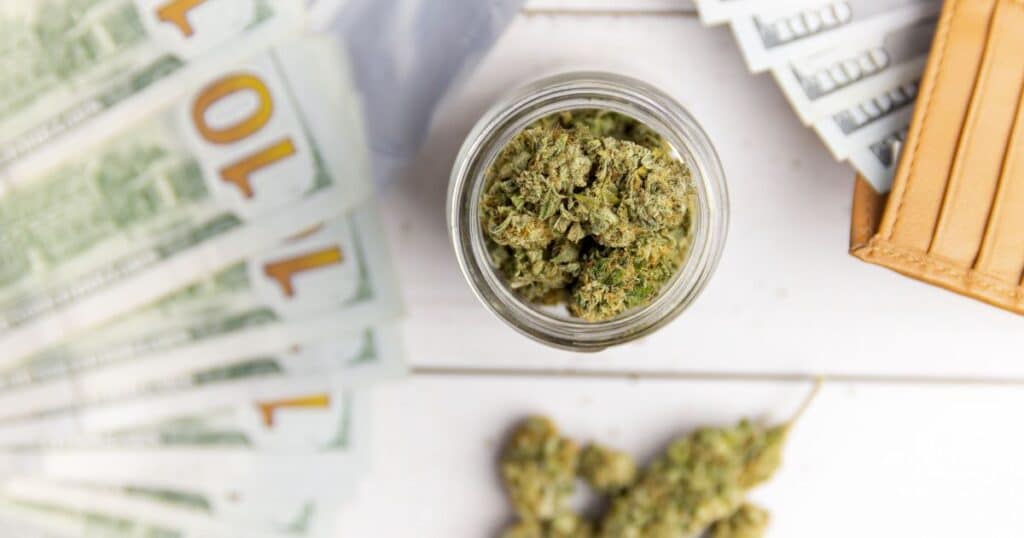As cannabis legalization gains momentum across the nation, Florida’s Amendment 3 sought to make history by becoming the largest recreational cannabis initiative ever proposed. The proposal sought to legalize recreational cannabis, promising economic growth and personal freedom. However, the ambitious initiative fell short. Let’s explore the possibilities of why Amendment 3 failed, the significance of the supermajority requirement in Florida, and what the future might hold for cannabis legislation in the Sunshine State.
Understanding Supermajority Requirements in Florida
In Florida, a supermajority is a requirement for constitutional amendments to receive at least 60% of the vote to pass. This threshold is higher than a simple majority, ensuring only broadly supported measures become law. The intent is to safeguard the state constitution from frequent changes driven by narrow interests.
The supermajority requirement was established in 2006 when Floridians voted to amend the state constitution. The goal was to prevent hasty or poorly considered amendments by requiring a more substantial consensus among voters. Ironically, the amendment establishing this rule passed with only 57.78% support—short of its own proposed threshold.
For Amendment 3, more than 5.9 million Floridians, or 55.9%, voted in favor of legalizing recreational cannabis, according to Ballotpedia. While impressive, it fell short of the 60% needed for passage. This illustrates how the supermajority rule can significantly influence the outcome of ballot measures, even those with considerable public support.
Unpacking Amendment 3 and It’s Financial Backing
Amendment 3, brought forth by Smart & Safe Florida, aimed to legalize recreational cannabis for adults aged 21 and over, allowing them to possess, purchase, and use marijuana for personal, nonmedical purposes. It included provisions for existing medical marijuana dispensaries to sell to recreational users and for state-licensed businesses to cultivate and distribute cannabis.
Trulieve, Florida’s largest medical marijuana company, was the financial powerhouse behind Amendment 3. With an extraordinary investment of nearly $140 million out of a total contribution of just over $150 million towards Amendment 3, Trulieve’s contributions made this the most expensive marijuana initiative in history by far. The company’s interest was clear—legalization could yield substantial profits, expanding its market presence.
During the campaign, even President-elect Donald Trump voiced his support, stating that he would vote yes on Amendment 3.
However, critics raised concerns about Amendment 3’s potential to create an oligarchy. The single-subject rule prevented the inclusion of key features found in other states’ cannabis laws. The amendment did not permit home cultivation, lacked provisions for criminal record expungement or social equity, and was vague about new licenses. This led to fears that established companies like Trulieve would dominate the market, limiting competition and consumer choice.
Why Amendment 3 Failed
Florida’s single-subject rule requires each amendment to address only one issue, preventing the proposal from being overly complex or multifaceted. While intended to simplify the legislative process, it limited Amendment 3’s scope, excluding critical components seen in other successful cannabis initiatives around the United States.
Amendment 3’s failure to include social equity provisions or expungement for past cannabis-related convictions was a significant shortcoming. In states that passed adult-use cannabis legislation, these features have been integral to gaining public support. By omitting them, Amendment 3 alienated potential allies and left a gap in its appeal.
The absence of home cultivation rights was a huge contention, and clarity on new cannabis business licenses further weakened Amendment 3. Many voters see home cultivation as a personal freedom issue, while a lack of new licenses suggested a market skewed toward existing players. Both factors dampened enthusiasm among potential supporters, with even those who wanted to see recreational cannabis in the state.
Historic Scale of Amendment 3
Amendment 3 was the largest marijuana initiative in history, both in terms of financial backing and opposition spending. Trulieve’s massive investment surpassed all previous records, highlighting the growing influence of corporate interests in cannabis legislation.
Despite being outfunded, opponents of Amendment 3, led by Florida Governor Ron DeSantis and the Florida GOP, mounted a formidable campaign. With around $50 million reportedly raised, they leveraged public funds and endorsements to challenge the measure. Their efforts included television ads and public events emphasizing perceived risks, aiming to sway voter opinion.
Trulieve responded to the Florida GOP’s ads against Amendment 3 by filing lawsuits, arguing that the ads were misleading.
Amendment 3 arrived at a politically charged moment in Florida. With the November election approaching, cannabis legalization became a focal point for voters and politicians alike. The requirement for a 60% majority was a steep hurdle in a state known for its conservative leanings.
Ultimately, Amendment 3 garnered a majority of the vote but fell short of the 60% threshold necessary for passage in Florida. Although many voters supported the initiative, a significant portion deemed it insufficient for meaningful cannabis reform. The initiative’s inability to address critical issues such as home cultivation, criminal record expungement, and social equity contributed to its failure.
Moving forward, advocates for cannabis reform in Florida must prioritize crafting comprehensive legislation that can be introduced as a standalone law, circumventing the constraints of the single-subject rule. Future efforts should ensure that essential provisions like home grow rights, expungement, and social equity measures are included to create a robust and inclusive framework for cannabis legalization that truly reflects the needs and desires of Floridians.

















